Naomi Mwaura
Founder, FLONE INITIATIVE
Fellow project website: www.floneinitiative.org
Raised in a family of transportation workers, Naomi is using data and education to make Kenya’s matatu or public bus industry safer and more inclusive for passengers and more profitable for operators.
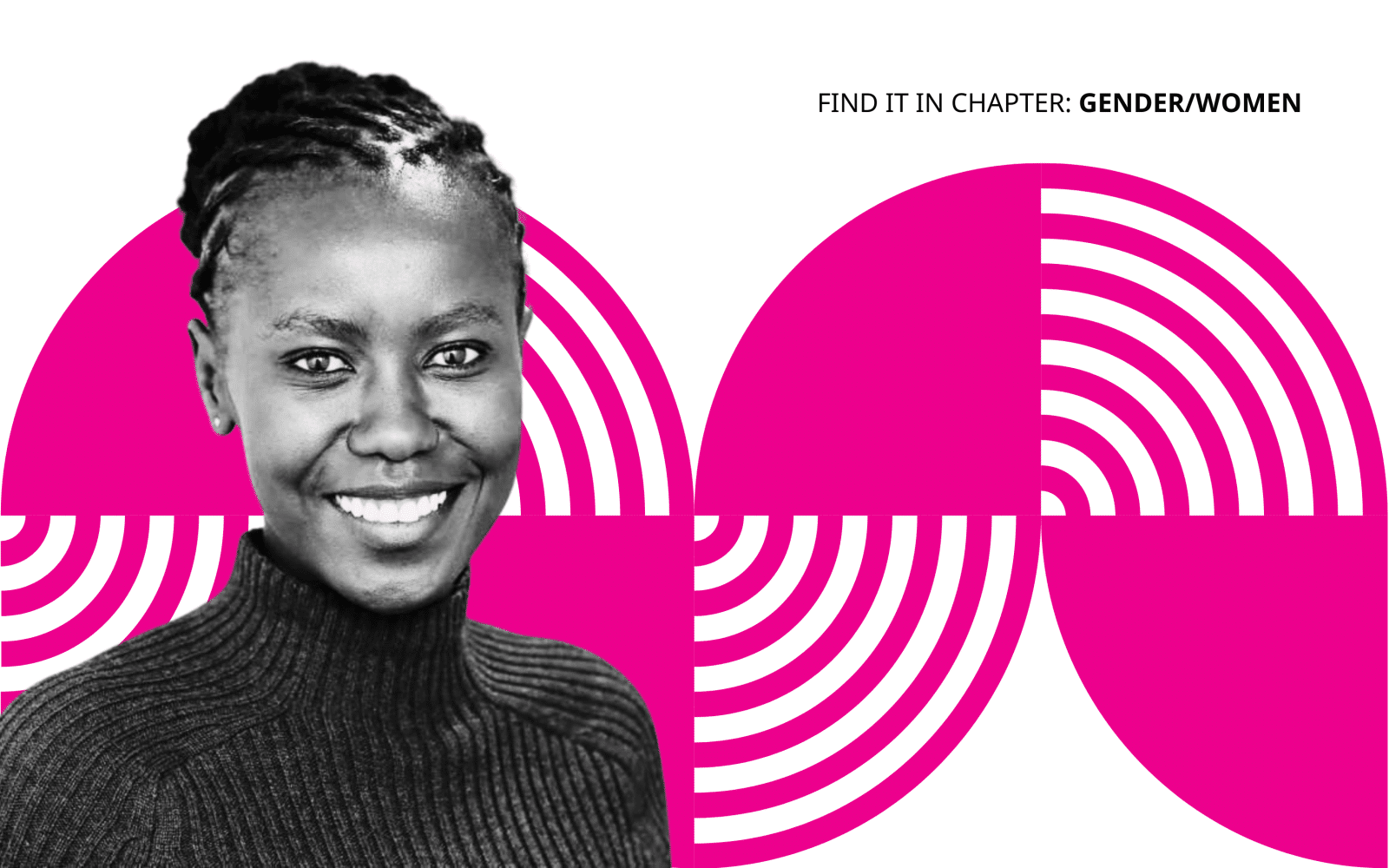
THE NEW IDEA
It would be impossible to describe vibrant Kenyan cities like Nairobi or Mombasa without mentioning the brightly colored minivans called “matatus” and the vital role they play in economic and social mobility. These individually owned and operated vehicles transport 70% of the population every day. While matatus are ubiquitous, the transportation system is plagued by inefficiency and corruption, and it has earned a reputation as unsafe and unpleasant for women, children, the elderly, and people with disabilities. By engaging the thousands of members of this workforce to improve and dignify their workplace, Naomi believes that within a generation, citizens can make matatus a safe, efficient, and preferred mode of transportation, so that all Kenyans can participate more fully in the economy and society.
Naomi started the FLONE Initiative, named for her parents Florence and Nehemiah, to provide research, training, and advocacy for better public transit after noticing female classmates experiencing harassment at transit stops near their university campus. FLONE uses research on violence “hot spots;” culturally adapted education of matatu owners about the untapped market potential of women and other vulnerable riders; culturally targeted education campaigns for drivers and the public (including key influencers of particular tribes); and bystander intervention trainings to improve the rider experience for women and vulnerable groups. Naomi and FLONE work with government agencies, transportation workers, and unions to measure and scale improvements to driver and conductor services; and to increase the number of women who can safely work in the public transportation industry.
FLONE has changed laws, reformed policies, upgraded certification processes, and is beginning to make its mark across the continent. Over the past seven years, FLONE has trained 3,000 matatu workers and more than 100 transportation stakeholders (labor unions and government agencies) in public safety, sexual harassment prevention, and capacity building. FLONE created Women in Transport Chapters (WIT), growing to three cities in Kenya and one each in Uganda and Tanzania, to attract and advance women workers in the matatu industry, and has served over 1,000 of them with professional development courses. For two of the larger matatu managing co-ops, FLONE has conducted sexual harassment training and guided the creation of reporting structures and customer feedback systems.
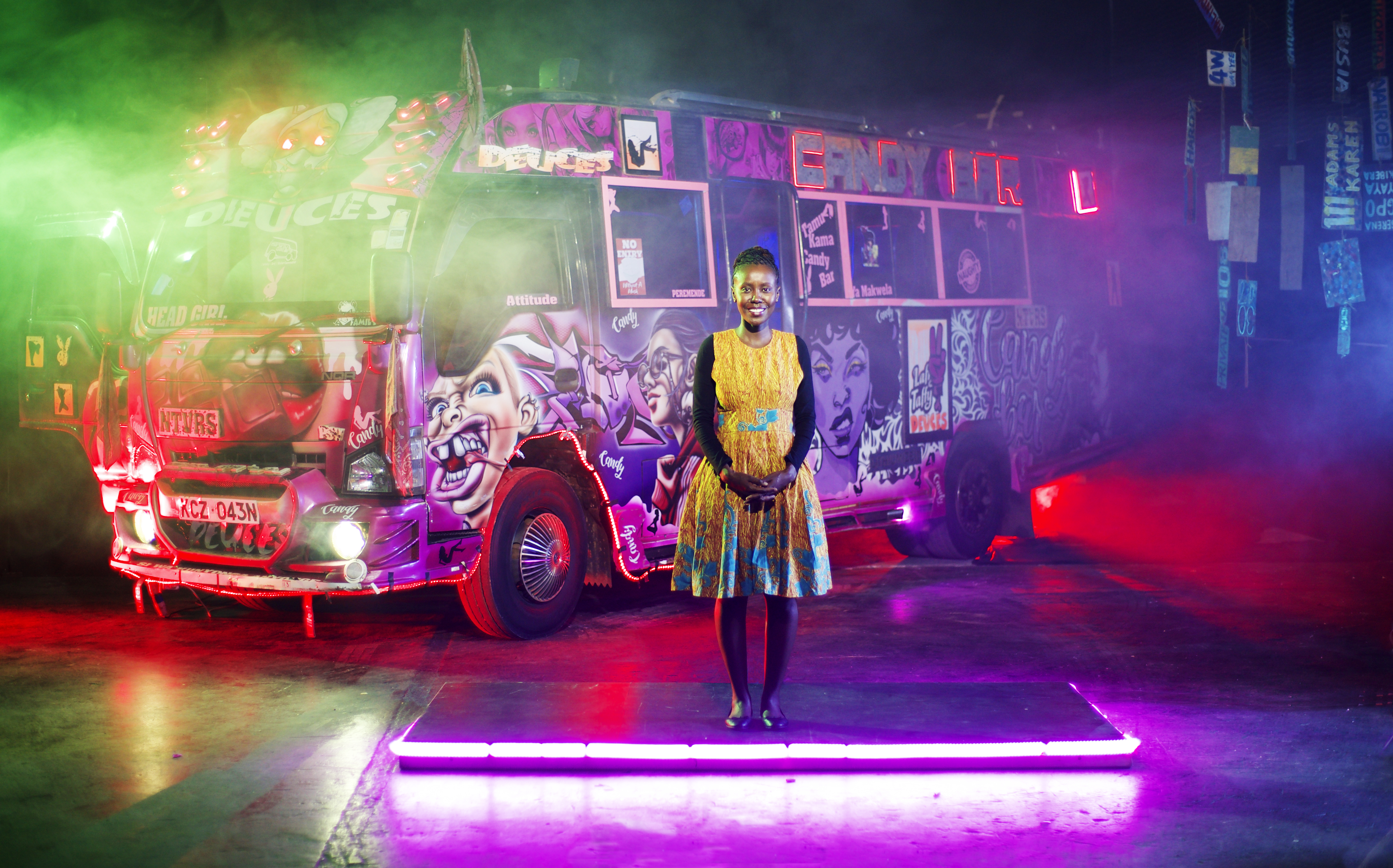
Photo Credit: Naomi Mwaura
"Living out the definition of a changemaker, Naomi and the Flone initiative are taking on sexual harassment in public transportation, providing safe employment opportunities for women, educational opportunities for sexual health, and creating programs for a healthy professional transportation system.”
-A Resilient Project
FLONE organized the now-annual continent-wide Women in Transport Africa Conference, providing workshops and research on public safety for over 1,300 practitioners and policymakers. Kenya’s National Safety Transport Authority has implemented FLONE’s recommendations on sexual harassment into its driving school curriculum. And a national protest FLONE organized led to the outlawing of a common harassment practice on matatus, punishable now by long prison terms.
THE PROBLEM
Every day, 70% of daily commuters in Kenya rely on an informal fleet of some 80,000 privately owned matatus – the popular 13-seat minibuses – to get to and from work, school, shopping, and home. Each matatu operates on a shared revenue model, with a driver up front and a conductor who calls out the route and collects the fares. The driver and the conductor effectively rent the matatu from its owner for USD 50 per day and split any excess proceeds. They drive fast and squeeze in as many passengers as possible to make sure they don’t go home empty-handed. Powerful owners lobby or bribe officials to make sure this lucrative business remains unregulated. In exchange for low prices and quicker trips, passengers have for years put up with cramped vehicles, ever-changing routes, unchecked behavior of employees and other passengers, and even high speeds and reckless driving, which have earned Kenya and neighboring countries the dubious distinction of having the highest road traffic fatality rates in the world.
From the perspective of a commuter using a matatu to access work, school, childcare, or shopping, the industry was designed for the convenience of able-bodied men, not for the needs of women, teenage girls, children, the elderly, or people with disabilities. First, incidents of sexual harassment (e.g., touching, pinching, taking revealing photos, publicly stripping women of their clothes) and sexual assault against women on matatus are high: 73% of matatu managers and 88% of commuters have experienced or witnessed sexual violence against women or girls on public transport. There also are countless police reports on violence against commuters from these and other vulnerable groups.
Second, women in Kenya travel differently from men: As primary caretakers, women often must carry multiple packages and travel with children or older adults. While women are reliant on public transportation, they face enormous obstacles in accessing it, including unpredictable routes, being charged extra for large parcels, feeling unsafe traveling at night, and having to make multiple trips to fulfill their responsibilities.
"For the past seven years, Flone Initiative has worked with more than 3,000 public transport workers, over 100 transport stakeholders and 1,000 women professionals to implement interventions.”
-TEDx
For decades the government has largely avoided regulating the matatus. Consequently, the public transport industry has evolved into a chaotic system with a weak framework of written and unwritten rules, mostly crafted by the same players who are benefiting from little regulation. There is no official training or qualification required to become a matatu operator, just as there are no background checks or contracts. Owners have little incentive to change, as they pay no taxes, and don’t have to provide drivers or conductors with minimum wages, paid holidays, or benefits. Because of the lack of regulation and oversight, matatu owners and operators suffer the stigma of being associated with criminality and recklessness. There is a widespread belief that working in the industry is for rude and uneducated men. Kenyan commuters merely put up with this dysfunction, while those with means seek the escape of private car ownership.
THE STRATEGY
Over the past decade, Naomi has used data, research, and stakeholder participation to implement new safety policies and business practices in the matatu industry, and to show commuters they can and should expect more of the transportation system. Unlike previous reform attempts that vilified or disregarded matatu owners and operators, Naomi starts by engaging respectfully to help owners, drivers, and “touts” honor and hone their trade.
One of her first strategies has been to help people understand transport problems as systemic, not just the fault of a few bad apples. News stories of tragic accidents often fixate on a reckless driver, just as a woman’s dress is often cited as the reason for her having been assaulted on public transit. To change the narrative, Naomi worked with TV and radio stations that reported only individual case by individual case. She helped them see the full picture of systemic dysfunction and the widespread and serious nature of violence experienced by women on public transportation.
Using open-source data and research, Naomi and other stakeholders and allies have taken on one problem after another, pressing for specific changes. One example involves the comprehensive way FLONE addressed a common form of sexual assault in Kenya: When groups of men believe a female passenger at a matatu stop or riding a minibus is wearing a dress that is too short, they strip her naked in public. Appalled but undeterred, Naomi organized ‘My Dress, My Choice’ protests, which sparked awareness and research on the issue and enabled women to speak publicly about daily experiences using public transport. She brought together county officials, researchers, and commuters to develop a Sexual Harassment and Gender Sex Violence policy for public transport, recently approved at the county level. At the national level, thanks to FLONE’s work with legislators, Kenya passed a new law that makes “stripping women in public transport” punishable by up to 20 years in prison.
Improving the experience of Kenyan commuters is a key priority for FLONE. Naomi and her team developed the online platform and mobile app ‘Report It, Stop It,’ for commuters to report incidents they experienced and to rate the security of different transport routes. FLONE then open-sources this data for commuters, CSOs, and local governments. This pinpoints specific problems and specific locations.
To further address passenger needs and concerns, FLONE surveyed Kenyan women’s travel patterns and challenges using the matatu system. The assessment revealed multiple acts of violence against women and girls. Partnering with UN-Habitat, FLONE created a toolkit of professional development classes for transport workers, providing minimum standard guidelines and tools to create safer and more accessible systems. FLONE uses the toolkit to integrate gender-sensitive policies into the culture of transport organizations. Courses address how to spot and prevent sexual harassment and violence but also emphasize customer service: How to better accommodate female passengers and other vulnerable groups, and in so doing increase daily revenues. There is also financial management training and help for operators to improve business systems. By working directly with matatu drivers, conductors, and owners to raise the standard of behavior, FLONE is helping them improve the commuters’ experience and showing them how this can in turn improve their bottom lines. Naomi is also working with policymakers to incorporate the toolkit into national policy in Kenya and scaling it to Uganda and Tanzania.
"Naomi Mwaura is calling for a revolution in public transportation – making route information more accessible, protecting passengers from harassment, and paving a career path for women in the industry.”
-Women Mobilize Women
Because women report feeling safer in matatus owned and driven by women, Naomi created ‘Women in Transport Chapters’ (WIT) to attract, retain, and advance women workers in the matatu industry. FLONE launched a comprehensive six-month driving course to help women conductors advance to become drivers, a position better protected from job loss. From the first training offered, in Nairobi, 33 women completed the course and 11 have received promotions. With WIT chapters in Nairobi, Machakos, and Mombasa County, as well as outside Kenya in Kampala and Dar es Salaam, WIT members have become a voice for transformation in the industry. They’ve also set up a member-financed loan fund to provide women in the industry with affordable loans, especially important in areas with limited access to traditional banking.
"Naomi is building a movement of inclusive mobility in Kenya where we break down siloes and bring support to the three main stakeholders: practitioners, commuters and government officials.”
-Kenyans.co.ke
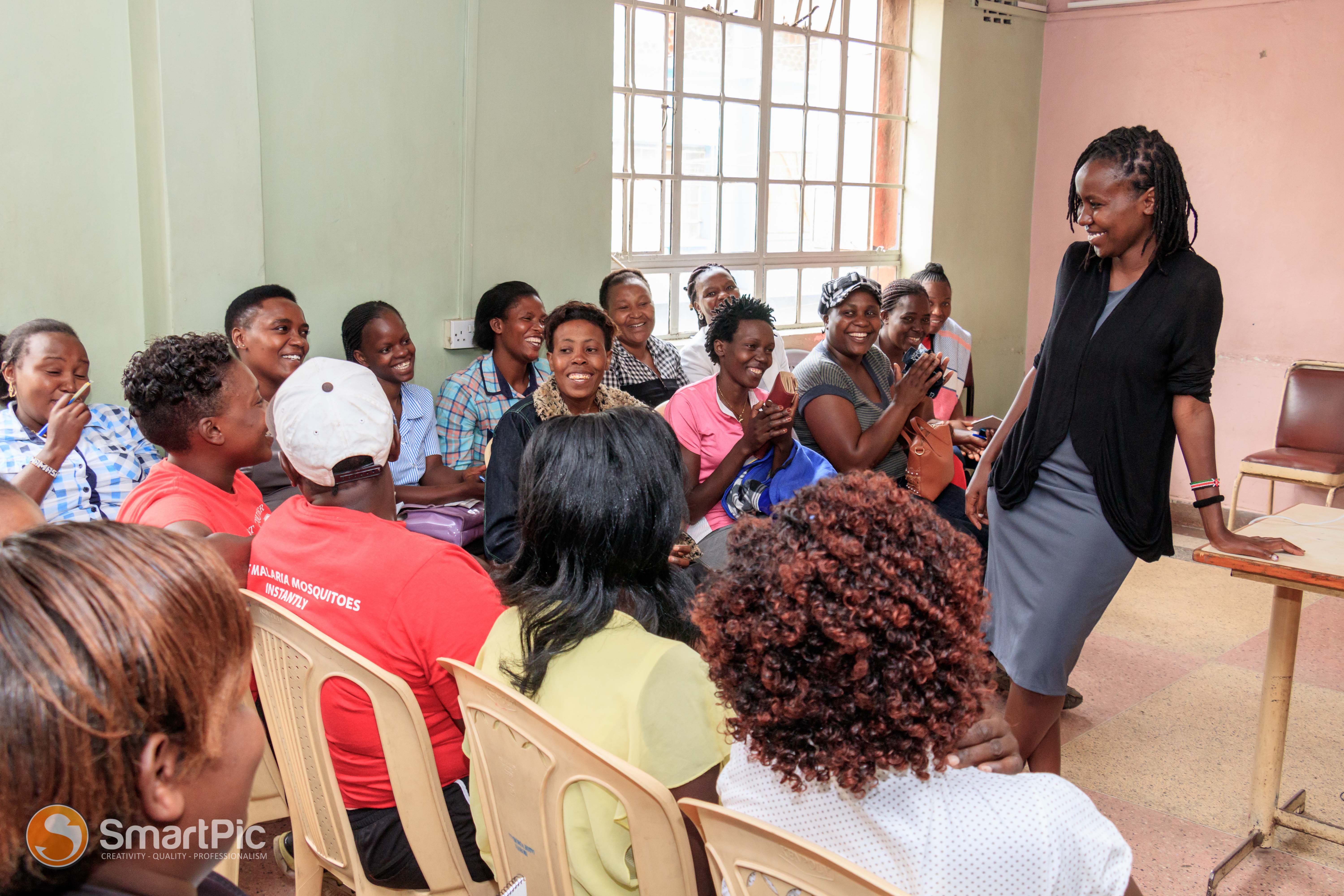
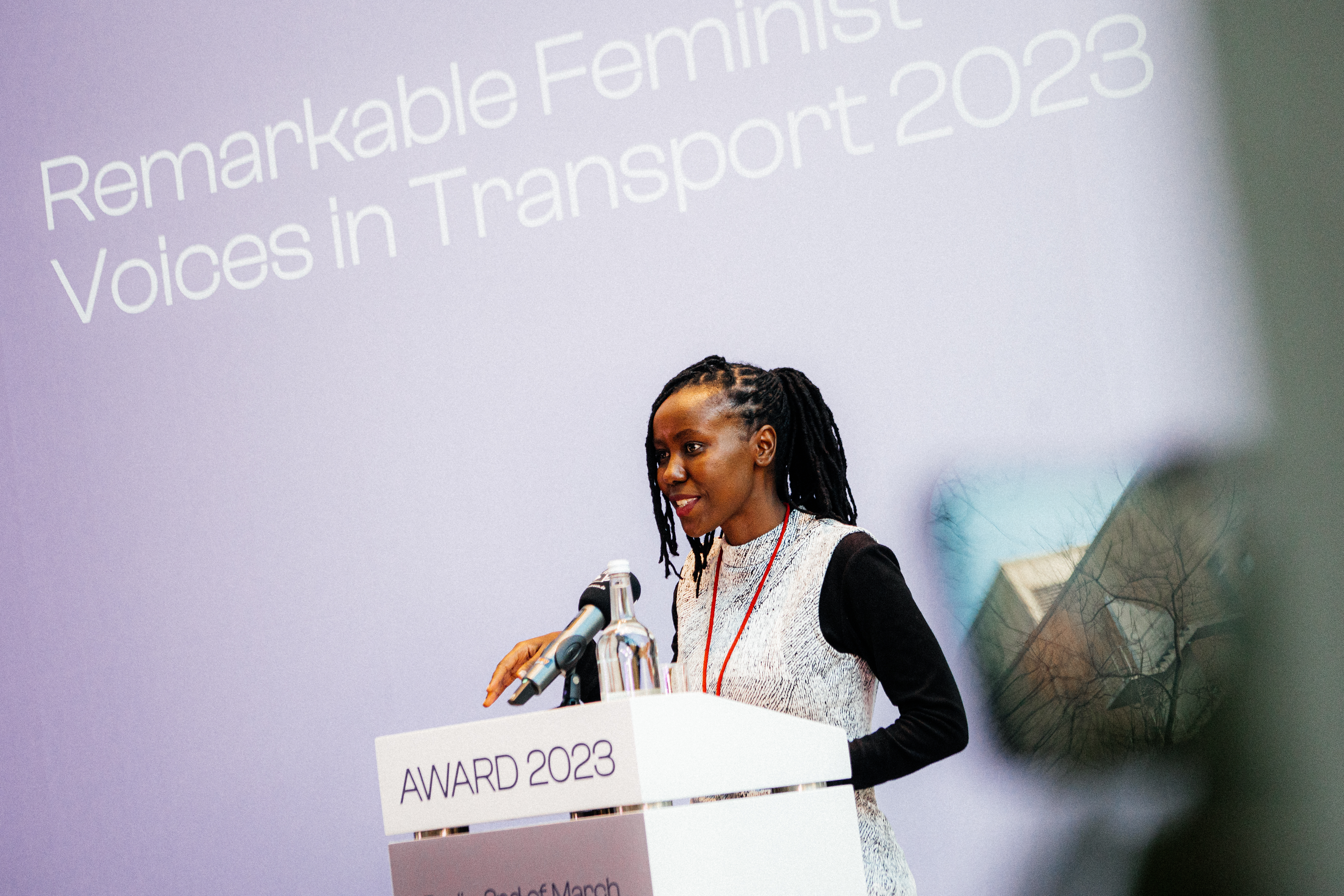
Photo Credit: Naomi Mwaura
At the grassroots level has given FLONE the credibility to become the “go-to” organization for labor unions to reach out to for industry advice. FLONE and the Transport Workers Union of Kenya hosted a forum on transport workers’ rights to mediate between workers and traffic police, resulting in the first-ever venue where both parties could discuss issues and develop a consensus on how to handle them. FLONE also worked with the Uganda-based Amalgamated Transport and General Workers’ Union to support women members and to create a Women’s Committee within the Union.
Naomi also engages government agencies and county officials to create capacity at a state level, enlisting both the Nairobi City Council and the State Department of Gender in FLONE’s training, research projects, and stakeholder forums. Because of consultations with FLONE the National Transport Safety Authority incorporated substantial information on sexual harassment in its revised driving school curriculum.
Wider changes in policy and public prioritization can be seen each year at FLONE’s annual ‘Women in Transport Africa Conference,’ a gathering that brings together civil society, policymakers, city authorities, researchers, academics, industry workers, and students from across the African continent. It is the only professional platform for practitioners to share their experiences and challenges and to inform policy, research, and public interventions in the industry. Naomi envisions hosting future conferences at different cities in Africa to build a smart network of partners who can strengthen, formalize, and organize the transport industry in their countries.
THE PERSON
As an only child, Naomi held a special relationship with her introverted father. They read books and discussed them together as a way to teach Naomi to think creatively, question norms, and foster curiosity. Her mother was a full-time secretary but was (and still is) a serial entrepreneur, who would involve Naomi in her ventures, ranging from making and selling soap, selling firewood, and supplying uniforms to security firms in Nairobi.
In her teens, Naomi’s family invested in a matatu. She felt a sense of pride knowing that her family’s matatu was one of the most popular minivans around, mostly – she suspects – because of its trendy paint job. She grew up watching her uncles as owners, drivers, conductors, and cleaners of matatus. For her family, public transport was a source of income and employment, and Naomi understood its importance to their passengers in accessing jobs and financial independence.
Naomi was very aware of the challenges family members faced working in transportation. All of them contended with the corruption, bribery, and violence endemic to the industry. Her uncles were the victims of a carjacking and shooting while driving their matatu, and Naomi herself was physically assaulted by a conductor. Yet despite popular belief, Naomi saw the industry not as unfixable, but rather as a neglected sector badly in need of transformation. In her university years, Naomi launched and led several student groups to spotlight and help women -- from poetry slams and peer counseling to female self-defense initiatives. She realized that her female classmates remained especially vulnerable to harassment at the public transit terminals near the university. This both gnawed on her and inspired her to take action. What could she do about a cause she cared about and an industry she knew so well?
In 2011, while still in university, Naomi and some female friends started researching and piloting projects to create safe, sustainable, and accessible public transportation spaces for women and vulnerable groups. After graduating in 2013 Naomi formalized this work under the name FLONE Initiative.
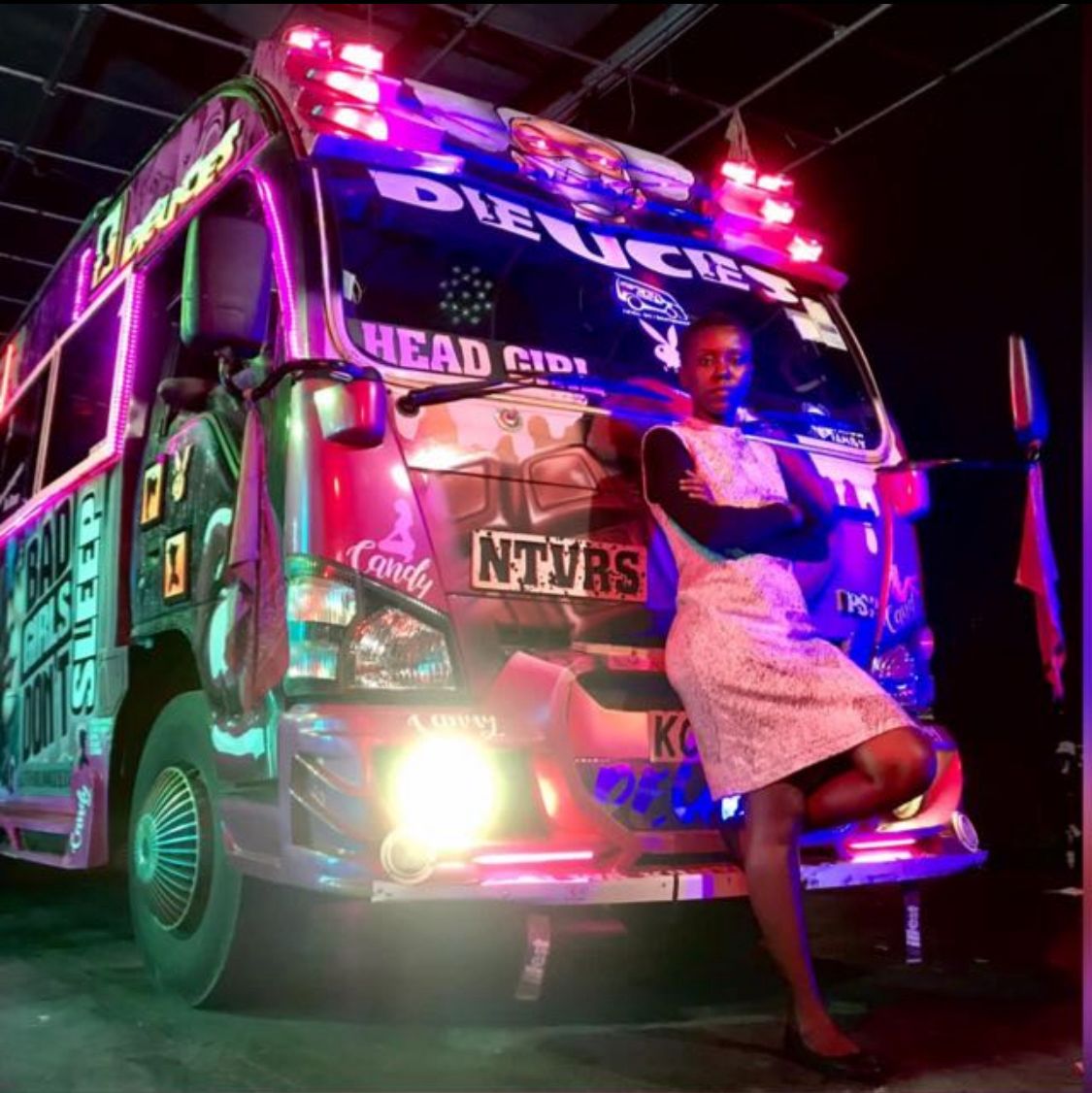
Photo Credit: Naomi Mwaura